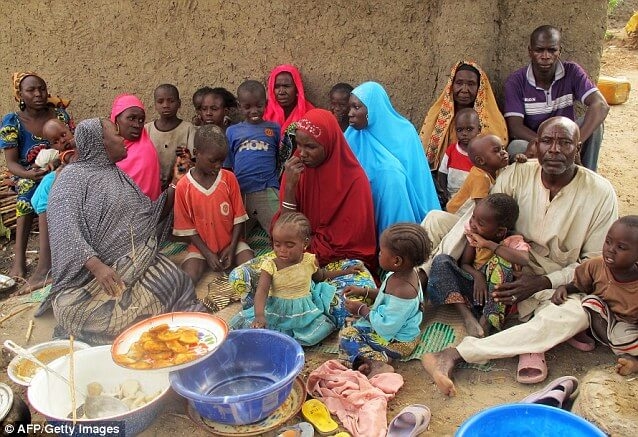This post has already been read 4491 times!
• Mineral resources give 64 per cent of funds
• ‘Revenue alone doesn’t make nation wealthy’
Stakeholders in the economy yesterday expressed worry about the disparity between huge government earnings and growing poverty in the country.
This followed the report by the Nigeria Extractive Industries Transparency Initiative (NEITI) showing that N28.58 trillion was remitted to the Federation Account between 2012 and 2016.
NEITI’s latest Fiscal Allocation and Statutory Disbursement (FASD) Audit report for the period shows that of the N28.58 trillion, mineral sources contributed the highest sum of N18.15 trillion (after deductions for joint venture cash calls and subsidy claims), representing 64 per cent of the total earnings. This was followed by non-mineral source (N6.68 trillion), representing 23 per cent, while Value Added Tax (VAT) was N3.73 trillion, representing 13 per cent.
An analysis of the N18.16 trillion mineral revenues shared among the three tiers of government showed that the Federal Government received N8.32 trillion from 2012 to 2016; the 36 state governments shared N4.22 trillion, and the 774 local government areas got N3.25 trillion. This is exclusive of the N2.36 trillion 13 per cent derivation to the oil, gas, and mining producing states.
The report also disclosed that from the share of non-mineral revenue of N6.68 trillion, the Federal Government received N3.52 trillion, the 36 states got N1.79 trillion, and the local government areas took N1.38 trillion. The total VAT revenue of N3.73 trillion was shared as follows: Federal Government (N560 billion), 36 states (N1.88 trillion) and 774 local governments (N1.31 trillion).
“Unfortunately, the country remains economically dependent on less-endowed countries because of the less than optimal use of natural resources, made up mostly of products from the extractive industry,” said Prof. Segun Ajibola, former president of the Chartered Institute of Bankers of Nigeria.
He further blamed the country’s slow growth and development on its “perverse spending pattern, corruption in high places and misplacement of priorities.”
On his part, Prof. Adeola Adenikinju regretted that a few privileged people were mortgaging the nation’s wealth. The director, Centre for Petroleum, Energy Economics and Law (CPEEL), University of Ibadan, noted that without corresponding increase in other assets such as human capital, physical capital and financial capital, the living standards of future generations could be jeopardised.
“It is sub-optimal to look for an increase in revenue through the expansion of taxes without first resolving the inefficiency and waste in the use of existing revenues. We live in a country characterised by heightened insecurity, dilapidated infrastructure, mounting unemployment and poverty, and decline in many welfare indicators. We need, as a country, to reflect and recalibrate our development strategy,” he said.
Idayat Hassan, who is the director, Centre for Democracy and Development (CDD), maintained that the offices of elected persons were costing the country a fortune. According to her, “Things have to change because 20 years of democracy is enough time for the citizenry to enjoy the dividends of democracy.”
Dr. Ndubuisi Nwokolo, Senior Policy, and Research Lead at Nextier SPD, an international development consulting firm, took Hassan’s observation further, noting: “The cost of sustaining our bureaucracy is obviously very high. For instance, the 2019 budget has non-recurrent expenditure such as salaries, overheads, and other recurrent items account for 46 per cent of the total expenditure of N8.92 trillion.
“Considering the level of poverty in the country and the fact that the government is the highest employer, it may be wrong to cut down the size of bureaucracy without having a strong and robust private sector-driven economy, which can employ the majority of its citizens.”
Similarly, Managing Partner, Chancery Associates, Emeka Okwuosa, said: “The cost of governance has to be drastically whittled down. Bureaucracy has to be streamlined and we have to intensify the fight against corruption. We have to change our mindset about governance and start realising that we are servants of the people and not vice versa.”
But a former Chairman of NEITI, Ledum Mitee, had words of advice for the watchdog agency. Figures of monetary allocations for projects should be linked to what has been achieved, he suggested.
“That was why during our time in NEITI, we published the first Fiscal Allocations and Statutory Disbursements Audit, which tracked the extractive revenues to the actual projects. I would still recommend that report to the national and state Assemblies and other stakeholders. I would further recommend that NEITI embark on such exercise and improve on it, and also include local governments into such audits as was approved by the Jonathan administration.”
According to Mitee, it is important for citizens to use such results to hold governments accountable. If citizens do not pressure governments on the outcome of works by NEITI and other agencies, the expected benefits might not be achieved, he added.
In another comment on the nation’s economy, Prof. Pat Utomi urged the government to be discreet about pursuing revenue. “There is, of course, the tax angle. Revenue do not make a nation wealthy. What makes a nation wealthy is a production. With the way we are chasing revenue, we will prevent people from producing and ultimately democratise poverty,” he said.
The professor of political economy disclosed this during the ‘Empowered to Break Frontiers’ workshop organised by the Redeemed Christian Church of God, Faithful Chapel, Lagos, at the weekend.



